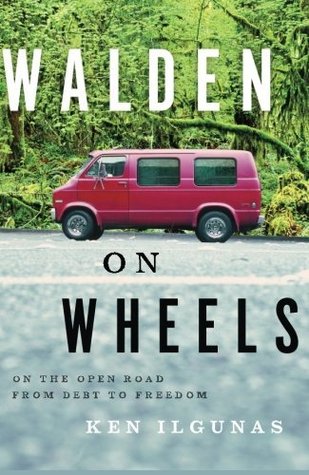More on this book
Community
Kindle Notes & Highlights
by
Ken Ilgunas
Read between
August 12 - August 12, 2018
At this moment, one of them might be reading Edward Abbey with the glow of her headlamp in a Walmart parking lot.
It didn’t occur to me to think about how strange it was that the government, my college, and a large bank were letting me, an eighteen-year-old kid—one who didn’t know what “interest” was (or how to work the stove for that matter)—take out a gigantic five-digit loan that might substantially alter the course of my life.
I do, however, remember not hearing any warnings about the consequences of debt or the likelihood of a bleak postgraduation job market.
I’d once heard that we are nothing but our stories. Forget the blood and bones and genes and cells. They’re not what we are. We are, rather, our stories. We are an accumulation of experiences that we have fashioned into our own grand, sweeping narrative.
Life is simpler when we feel controlled. When we tell ourselves that we are controlled, we can shift the responsibility of freeing ourselves onto that which controls us. When we do that, we don’t have to bear the responsibility of our unhappiness or shoulder the burden of self-ownership. We don’t have to do anything. And nothing will ever change.
Perhaps they didn’t hesitate to pick us up because they knew what it was like to be cold and hungry and away from home. They dwelled beneath poverty lines and were undereducated, but they were—in the ways that mattered most—far more civilized than the finely bred and carefully raised, for there is no demographic that has a sharper instinct for empathy than the downtrodden.
I learned that when work is meaningful and when the worker provides some useful service or produces some useful product, work is no longer “work” but an enriching component of one’s day.
Thankfully, it hadn’t gone any farther because my copy of Ayn Rand’s corpulent opus The Fountainhead got soaked, sinking the tent to the bottom of the river floor as if it were a treasure chest in the hull of a mighty ship. (Perhaps the only good the book has ever done.)
Must we measure our success by the size of our homes and salaries? What if we got healthier, lived more sustainably, and became more self-reliant, albeit in tighter dwellings and in smaller families? Isn’t that success, too?
It was fitting, I thought, how my first want wasn’t a product or a luxury; it was companionship.
The university today is not a place where we go to question the dominant institutions; it is a place where we learn to support them.
I knew what I was missing in my life. It wasn’t things. It wasn’t heat, plumbing, or air-conditioning. It wasn’t extra space, or an iPhone, or a plasma screen TV. It was people. It was a community. It was a meaningful role to play in my society.
We need so little to be happy. Happiness does not come from things. Happiness comes from living a full and exciting life.


